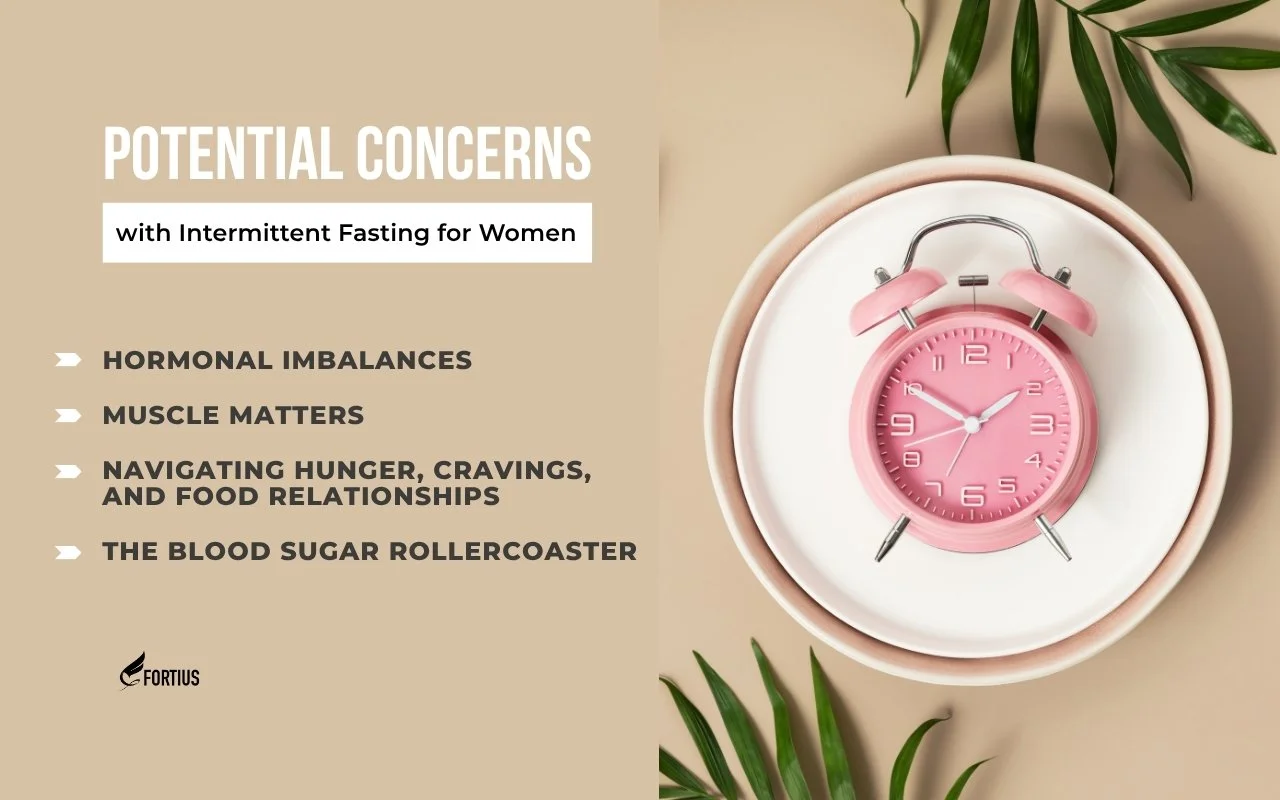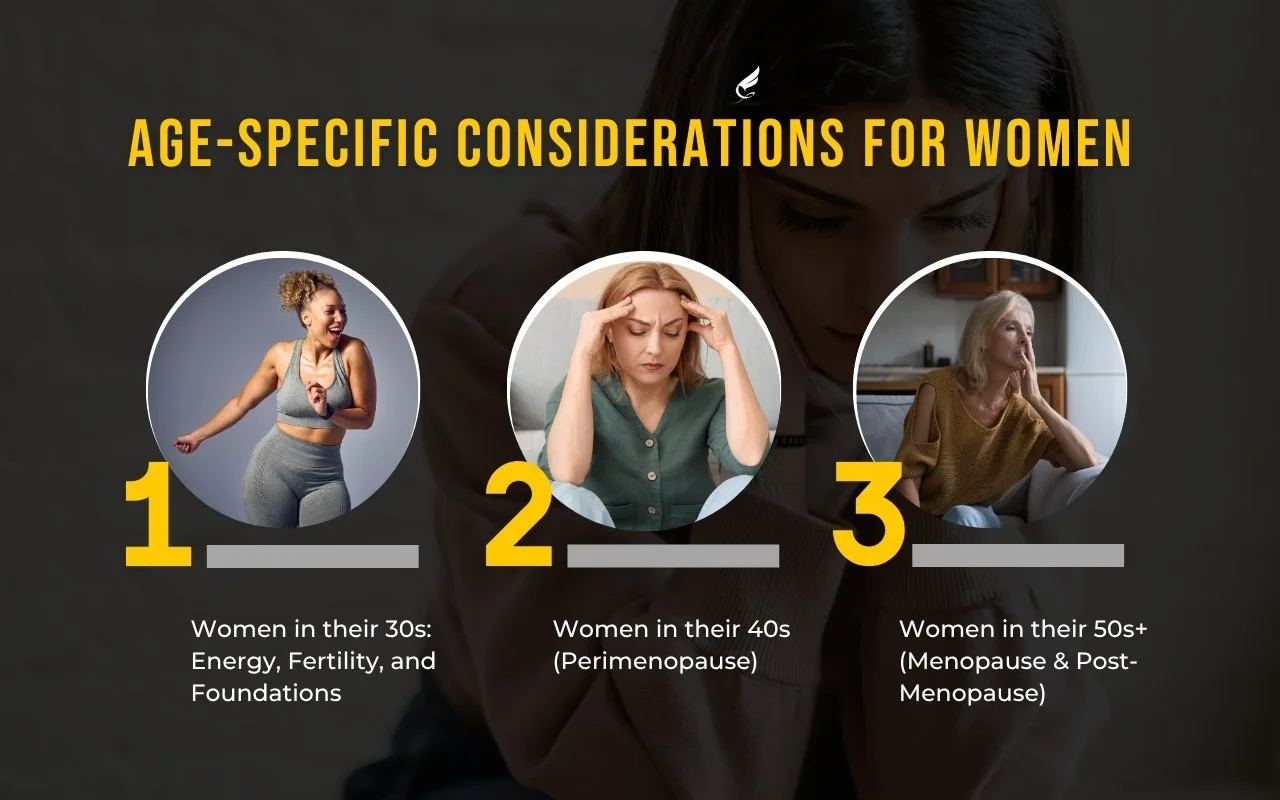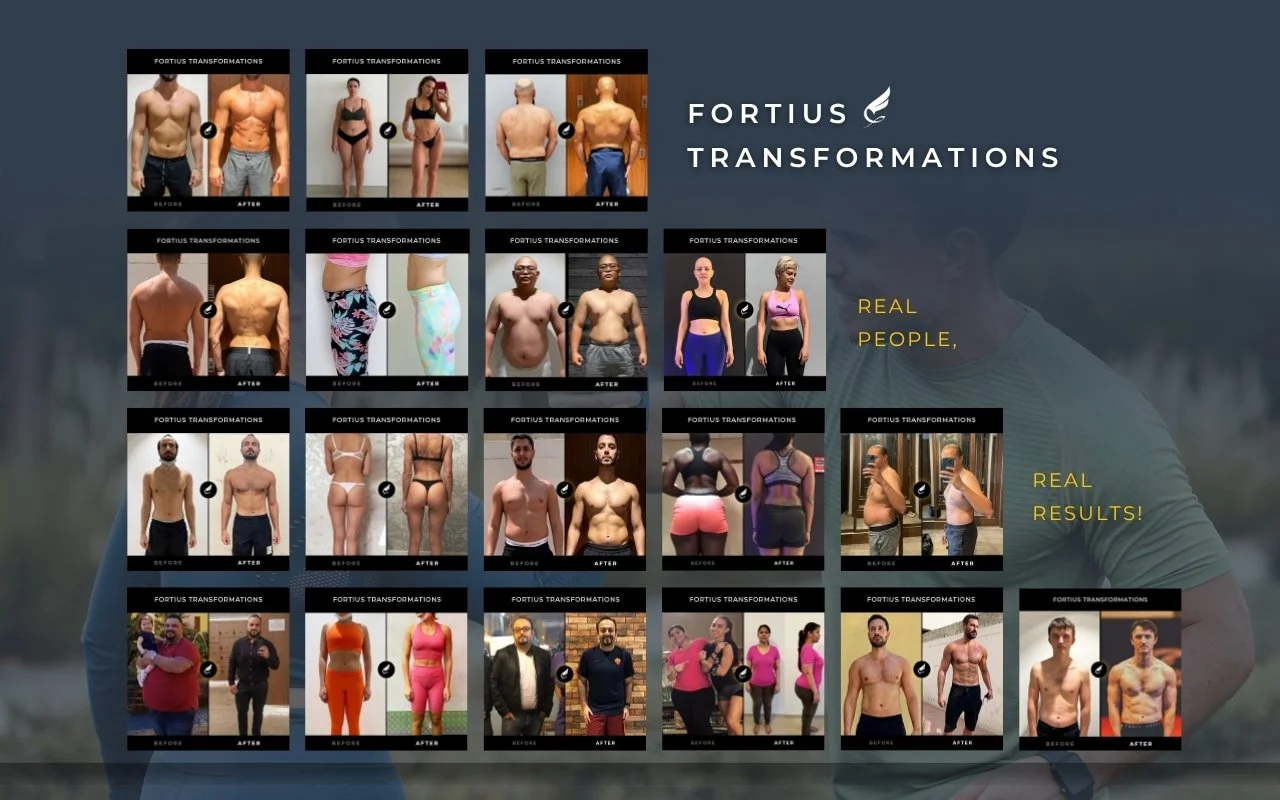Intermittent Fasting for Women in Dubai (30s, 40s, 50s): Unveiling Risks & Healthier Paths
The Allure of Intermittent Fasting in Bustling Dubai
In the dynamic, health-conscious environment of Dubai, Intermittent Fasting (IF) has gained considerable traction. Many individuals see it as a popular strategy to lose weight, kickstart their weight loss journey, and tap into purported health benefits. You’ve likely heard the success stories or seen it trending if your internet browser history is full of searches for quick weight loss solutions. The promise of simplifying eating schedules and unlocking metabolic advantages is certainly appealing, especially for those looking to integrate changes into their busy daily life.
However, while IF can offer benefits for some, it’s crucial to understand that it’s not a universally suitable approach—particularly for women. Your unique physiology means your body can respond very differently to fasting compared to men. This blog aims to delve deeper, to explore the potential downsides of intermittent fasting for women in Dubaiacross various life stages – from their energetic 30s through the transitions of perimenopause in their 40s and menopause in their 50s. I want you to learn about these aspects before making significant changes to your diet and routine.
Why Women Might Respond Differently to Intermittent Fasting
A woman's body is finely tuned for reproduction and survival, governed by a complex interplay of hormones. This system, especially the Hypothalamic-Pituitary-Adrenal (HPA) axis which manages stress, and sex hormones like estrogen and progesterone, is highly sensitive to energy availability and external stressors. Aggressive fasting, with extended fasting hours, can be perceived by the body as a significant stressor or a sign of famine.
It's also worth noting that a significant portion of early research on intermittent fasting was conducted primarily on men, meaning the female-specific responses are still being fully understood. What works for one individual, or one gender, doesn't automatically translate to another when it comes to intermittent fasting for women.
Potential Concerns with Intermittent Fasting for Women
Before thinking about diving into an intermittent fasting schedule, it’s wise to consider these potential challenges:
A. Hormonal Imbalances: More Than Just a Cycle One of the most significant concerns for women is the potential impact of IF on hormonal balance and energy levels.
Stress Hormones & Sex Hormones: Restrictive eating windows can elevate cortisol (the primary stress hormone). Chronically high cortisol can, in turn, suppress the production of key female sex hormones like estrogen and progesterone.
Menstrual Irregularities: This hormonal disruption can lead to changes in your menstrual cycle, including irregular periods, missed periods (amenorrhea), or changes in ovulation. Even if pregnancy isn't a goal, regular cycles are a vital sign of overall health.
Other Symptoms: Imbalances can also manifest as mood swings, increased irritability, anxiety, and sleep disturbances, potentially impacting your overall quality of life and focus in vibrant Dubai. This can also contribute to fatigue.
B. Muscle Matters: Preserving Strength and Metabolism in the UAE Maintaining lean muscle mass is crucial for a healthy metabolism, strength, and body composition – especially as we age and try to manage our weight.
Risk of Muscle Loss: If IF leads to a significant deficit in calories without adequate protein intake from foodsand, crucially, resistance exercise, muscle loss can occur alongside fat loss.
Metabolic Impact: Muscle is metabolically active tissue. Losing it can slow down your metabolism, making long-term weight loss and management more challenging and potentially hindering your fitness goals at your Dubai gym.
C. Navigating Hunger, Cravings, and Food Relationships While some IF proponents report diminished hunger over weeks of fasting, the initial phases (and for some, ongoingly) can be tough.
Intense Hunger & Cravings: Fasting periods can trigger intense hunger and cravings. This might lead to overcompensating or making less healthy food choices during eating windows, negating potential benefits and making it harder to control calories.
Relationship with Food: For individuals with a history of disordered eating, or those prone to a "restrict-binge" mentality, IF could potentially trigger unhealthy patterns. A healthy relationship with foods and meals is paramount.
D. The Blood Sugar Rollercoaster: Finding Stability Blood sugar regulation is key for sustained energy levels and overall health. Poor blood sugar control can also be a risk factor for conditions like diabetes.
Potential for Hypoglycemia: While IF can improve insulin sensitivity in some, for others, extended fasting hours can lead to low blood sugar (hypoglycemia), causing dizziness, fatigue, and irritability.
Cortisol's Role: Elevated cortisol due to fasting stress can also paradoxically contribute to higher blood sugar levels over time as the body tries to make energy readily available.
Meal Quality is Key: The nutritional quality of meals consumed during the eating window is vital for stable blood sugar and preventing energy crashes. A balanced diet is essential.
Age-Specific Considerations for Women in Dubai
How a woman’s body responds to an intermittent fasting diet can also vary significantly with age and hormonal status:
A. Women in their 30s: Energy, Fertility, and Foundations: For women in their 30s, often juggling careers, social lives, and possibly family planning in Dubai, energy levels and hormonal balance are key.
Reproductive Health: Aggressive IF protocols, like those involving very long fasting hours or fasting for two days a week (as in some 5:2 diet features), could potentially interfere with ovulation and menstrual regularity, which is a concern if fertility is a consideration.
Energy Demands: Sustaining energy levels for a demanding daily life is crucial. IF should not lead to persistent fatigue or an inability to perform optimally.
B. Women in their 40s (Perimenopause): Navigating Hormonal Shifts Perimenopause, the transition to menopause, typically begins in the 40s and brings its own set of hormonal fluctuations and symptoms.
Increased Stress Sensitivity: The body can become more sensitive to stressors during perimenopause. IF, if too restrictive, could act as an additional stressor, potentially worsening symptoms.
Symptom Exacerbation: Fluctuating estrogen and progesterone can cause hot flashes, night sweats, sleep disturbances, and mood changes. IF might aggravate these for some women.
Nutrient Needs: Supporting the body with nutrient-dense foods becomes even more critical. Any fasting routine must ensure these needs are met to navigate this transition smoothly and optimize health.
C. Women in their 50s+ (Menopause & Post-Menopause): Metabolic Health & Beyond With menopause (typically around age 50-51 in the UAE and globally), estrogen levels significantly decline, impacting metabolism, body composition, and bone health.
Metabolic Adjustments: Many women experience changes in weight distribution and find it harder to lose weight. While some may explore IF for weight management, the risk of muscle loss and nutrient deficiencies needs careful management.
Bone Density: Lower estrogen impacts bone density. Ensuring adequate calcium, Vitamin D, and protein intake, alongside weight-bearing exercise, is vital and should not be compromised by restrictive fasting hours.
Focus on Longevity: The goal shifts towards long-term health, vitality, and disease prevention. A holistic, balanced approach is generally more beneficial than a restrictive diet.
The Bigger Picture: A Note on Recent Research
It's also important to be aware of the evolving landscape of nutrition research. For instance, preliminary research presented at an American Heart Association conference in March 2024 suggested an association between 8-hour time-restricted eating (a common IF window with 16 fasting hours) and a higher risk of cardiovascular death over the long term.
While this is early data, and association doesn't prove causation, it underscores the need for a balanced perspective and caution against adopting restrictive eating patterns without considering potential long-term effects and individual health profiles. More research is definitely needed.
A Smarter, Individualized Approach to Health in Dubai
So, what’s a woman in Dubai thinking about her weight loss journey to do? The key is an individualized and sustainable approach:
Listen to Your Body: This is paramount. If fasting leaves you feeling consistently unwell, excessively hungry, moody, or with low energy levels and fatigue, it’s likely not the right fit for your body.
Consider Gentler Forms (If At All): If you are interested and have no contraindications, a gentler approach like a 12-hour overnight fast (which aligns with natural circadian rhythms) is less likely to cause issues than longer, more restrictive fasting hours. This can still offer some perceived benefits for digestion without excessive stress.
Prioritize Nutrient Density & Balanced Meals: Regardless of your eating schedule, focus on whole, unprocessed foods rich in vitamins, minerals, fiber, and phytonutrients. Ensure adequate protein in your meals to support muscle health and manage calories effectively. A balanced diet should naturally aid digestion.
Embrace Strength Training: Resistance exercise is non-negotiable for women of all ages, crucial for building and maintaining muscle mass, boosting metabolism, and supporting bone health. This is a key part of any healthy routine.
Manage Stress & Sleep: High stress and poor sleep can sabotage any health effort. Prioritize these for hormonal balance and overall wellbeing, helping to optimize your energy.
Fortius Dubai: Your Partner in Personalized Wellness
Navigating the world of health and fitness advice can be overwhelming, especially when you're trying to lose weight or improve your energy. At Fortius Dubai, we believe in a personalized, evidence-informed approach. Our expert trainers and nutrition coaches are here to help you discover and understand your unique physiology, lifestyle, and goals. We provide access to expert guidance:
Develop a sustainable nutrition plan that nourishes your body, with balanced meals and healthy foods, without unnecessary restriction.
Create an effective strength training program tailored to your level and aspirations, making exercise a positive part of your daily life.
Provide guidance and support that empowers you to make informed choices for your long-term health and vitality in Dubai, helping you move forward with confidence.
Beyond the Fast – Prioritizing Your Holistic Wellbeing
Intermittent Fasting is a dietary tool that has gained popularity, but like any tool, it has specific applications and potential drawbacks, especially when considering intermittent fasting for women in Dubai. Understanding your body's unique needs, particularly through different life stages in a demanding environment like Dubai, is crucial. Instead of chasing the latest diet trend, focus on building sustainable, enjoyable habits that nourish your body, build your strength, and support your holistic wellbeing for years to come. This will lead to more lasting health benefitsthan potentially problematic short-term fasting routines, especially those involving many hours or even two days of severe restriction per week.
Confused about Intermittent Fasting or your weight loss journey in Dubai? It’s time to move forward beyond generic advice. If you are interested in a personalized approach, book a complimentary consultation with our expert trainers and nutrition coaches at Fortius Dubai. Let's discuss a schedule and plan that truly works for your body and your goals. Learn more about how to manage your eating habits during celebrations with our tips and discounts.
FAQ (Frequently Asked Questions)
-
A: For some women, particularly those who are not overly stressed, are metabolically healthy, and adopt very gentle forms of fasting (e.g., a 12-13 hour overnight fast), IF might be manageable or offer some benefits without significant downsides. However, it requires careful attention to diet quality (the foods and drinks consumed), listening to body signals, and ideally, guidance from a health professional. It's less about IF being inherently "safe" or "unsafe" and more about whether it's appropriate and beneficial for an individual woman's unique context, especially considering her daily life and even how it impacts social weekends in Dubai.
-
A: Key signs include persistent fatigue, dizziness, significant mood swings or irritability, disruption to your menstrual cycle (irregularity, missed periods), hair loss, feeling excessively cold, trouble sleeping, or developing an obsessive preoccupation with food, eating windows, and fasting hours. If you experience these, it's a strong indicator to re-evaluate your routine.
-
A: Absolutely. A balanced diet focusing on whole, nutrient-dense foods, adequate protein intake, regular strength training and cardiovascular exercise, stress management, and quality sleep is generally more sustainable and beneficial for most women aiming to lose weight or improve their health. This approach supports hormones, builds metabolism, and fosters a positive relationship with food, fitting well into a healthy Dubai lifestyle.
-
A: Ensure your meals during your eating window are rich in protein, fiber, and healthy fats to promote satiety and stable energy levels. Stay well-hydrated with water or herbal drinks during fasting hours. Avoid highly processed foods that can trigger cravings and offer little nutritional value. Start with shorter fasting hours and see how your body adapts over several weeks, and don't push through significant discomfort. However, always prioritize overall well-being over adhering to a strict fasting schedule. Your focus should be on healthy eating.
We believe the following fitness and health topics might interest you:
-
Menopause: A Comprehensive Exploration of Its Signs, Symptoms, and Management Strategies
Strength Training for Women in Dubai: Sculpt a Lean Physique, Not Bulk Up
Strength Training for Women Over 40 in Dubai: Build Muscle, Boost Metabolism, and Feel Amazing
NAD+ Supplementation: Unlocking Cellular Health & Longevity (The Truth About the Pen)
Cardio vs. Weights: What's the BEST for Fat Loss? The Straight Facts







